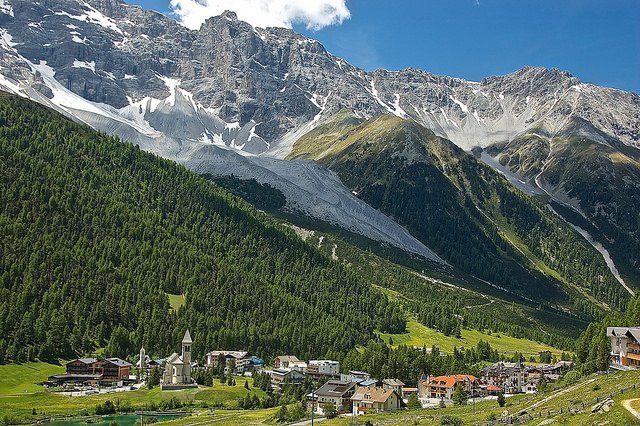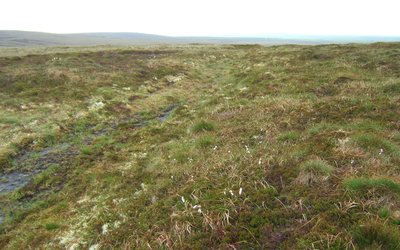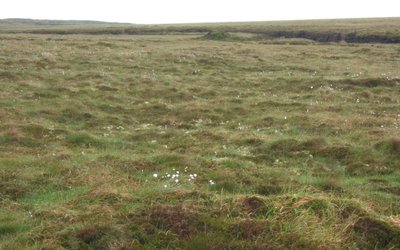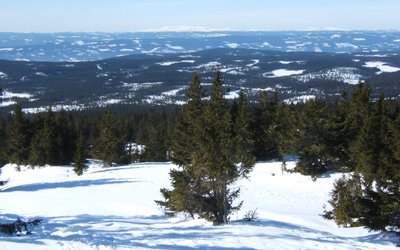Organic matter losses in German Alps forest soils since the 1970s most likely caused by warming
July 11, 2016

During the past three decades, soil organic carbon stocks in German Alps forest soils have decreased. Two independent datasets covering different regions and soil sampling methods show almost identical results: mean overall soil organic carbon stock reduction of 14.0% and 14.5%, respectively. These data refer to the topsoil: the organic surface layer + uppermost 30 cm mineral soil.
For dataset 1, organic carbon stock was quantified between 1986 and 1991, and again in 2010/2011. For dataset 2 samplings were carried out in 1976 and 2010/2011. Set 1 sampling sites are distributed over the entire German Alps, covering an area of 4,500 km2 , and include all major parent material, soil, and forest types. Set 2 comprises soils under mature Norway spruce forest and under adjacent meadow subject to extensive mountain pasture in the Berchtesgaden region, distributed over an area of 600 km2.
The results agree with projections in the scientific literature: global soil organic carbon stocks, particularly those in high-latitude or mountain ecosystems, are sensitive to climate change and are predicted to decrease in a warming climate, which may result in a positive feedback to climate change as well as in decreased productivity and ecosystem service accomplishment. The soil organic carbon losses induced by climate warming are likely to be due to accelerated microbial organic carbon decomposition with increasing soil temperature.
The German Alps are characterized by a cool, moist climate. Altitudinal gradient analysis studies report increasing organic carbon stocks of forest soils in the Alps with increasing elevation and concomitantly decreasing mean annual temperature. Hence, the increase of mean annual (and mean summer) temperature during recent decades, associated with increased soil temperatures, is probably a main cause for the observed soil organic carbon losses. During these decades, other factors influencing mountain forest soil organic carbon stocks have remained constant or favour soil organic carbon gains rather than losses, such as more sustainable forest management, increased atmospheric N deposition, and increased forest growth rates. Besides, the loss of soil organic carbon was most pronounced at sites with particularly large mean annual temperature increase.
Across the entire data set, significant soil organic carbon stock losses were identified for sites with altitudes <1,150 m. Losses were statistically insignificant at cooler and more humid sites at altitudes >1,150 m. This difference may be (partly) due to the fact that the growth of Norway spruce (the dominating tree species at the study sites), and therefore litter production, is positively related to increased mean annual temperature only at sites >1,200 m. Therefore, at higher altitudes increased soil organic carbon losses by accelerated microbial decomposition may be partially or completely outweighed by increased litter input, whereas this was not the case at low-elevation sites.
Source: Prietzel et al., 2016. Nature Geoscience 9: 543-548.
Photo: John Mason (www.flickr.com)








